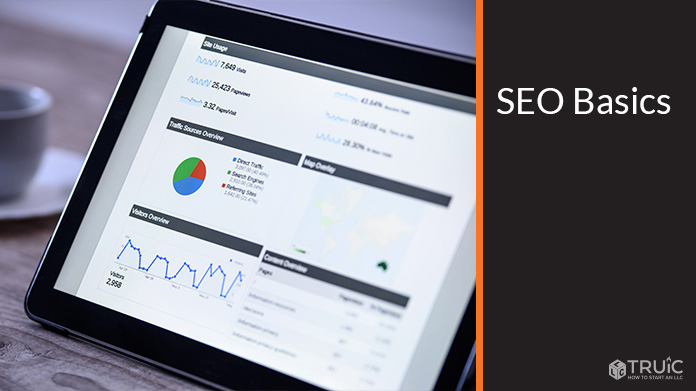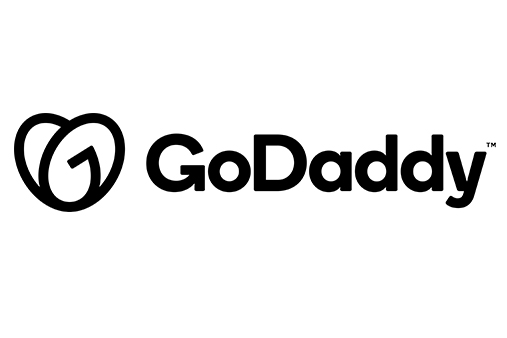SEO 101: Beginner's Guide to Search Engine Optimization
If you’re just starting to build your business website, it’s essential for you to understand what search engine optimization (SEO) is and why it's important.
With this beginner guide to SEO, you’ll learn why SEO is important as well as some solid SEO basics. We even explain how to best use search engine marketing tactics on your website so you can better use SEO to grow your business.
Recommended: Make sure your website builder includes SEO functionality. Read our Best Website Builder Review to learn more.

SEO 101: Beginner's Guide to SEO
Search engine optimization is a large, often complex, and ever-updating practice. It can sometimes be overwhelming to dive into it all at once. We recommend you bookmark this page to return to whenever you need a refresher or to return to some useful insights.
SKIP AHEAD:
What Is SEO?
Search engine optimization is the practice of increasing traffic to your website. This begins with ways to boost the chances of ranking higher on search engine results pages (SERP) as well as gaining you and your brand some solid exposure. There’s several ways to do this, but most importantly, it starts with good design.
It’s best to make sure your website is providing site visitors with what they need almost immediately. Why? Because despite how analytical and technical SEO can feel, it’s still just as much about the people searching for what they need as it is about how search engines work. Having a good understanding of your target audience, the answers they might be looking for, and what type of content you expect them to seek out, is all key to being able to provide a website that can accommodate this.
But that’s just half the battle. Once you know what your audience is looking for, you now need to understand search engines and how they rank sites. Major search engines like Google or Microsoft Bing, use complex algorithms to determine which websites best match a user’s search terms. So, when someone performs a Google search, Google accesses its database and looks for websites that will most likely meet the search criteria. It will then rank the results from most to least relevant.
Improving the search engine ranking of your site is all about modification. We’ll go into deeper detail, but some easy fixes typically include using specific keywords, adding image alts, and making your site easier to navigate in general. Some of the tactics we’ll discuss will help visitors better understand your website’s purpose, what content it contains, and why they should trust you as an authority.
Want to learn more about SEO?
Check out these other articles to help you dive deeper into the world of understanding and utilizing search engine optimization:
Why Does SEO Matter?
In short and simple terms, search engine optimization is one of best ways to generate traffic to your website. Sure, there’s other things you can do, but organic or non-paid search results will help you receive more clicks than paid ads and will cover more ground for you. Putting in just a little bit of time into optimizing your site for search engines to better rank will bring you more traffic and help you retain future and current customers.
Below are three reasons why having SEO basics is vital to running a successful website.
SEO is Free
Yes, search engine optimization is absolutely free! However, for a busy small business owner or LLC member it might be difficult to set aside all the time you rightfully need to do a good job impressing search engines. But, with the right tips and tricks, even the most frantic professional can perform some basic SEO on their own.
What’s more, properly set up SEO can end up paying dividends over time. If you can create an amazing piece of content that ranks well for the right keywords, you’ll see more and more traffic heading to you on a consistent basis. A much better option than having to continually set up and pay for Google Ads or Facebook marketing services.
SEO Boosts Your CTR
Click-through-rate (CTR) represents the number of people who view your website in search engine results, compared to the number who then proceed to visit your site. Typically, what’s found on the first page of Google or other search engines, will have a significantly better click-through-rate than results on the second or third pages. What's more, results in the top five postions on the first page have been proven to get the most clicks of them all.
All this is to say, when your business appears on the first page for major search engines, you have a much better chance of reaching your target audience. SEO plays a huge part in this, you won’t magically get there just by creating a great website, you need to have a good understanding of what it takes to get you to these top spots.
Learn more about what it takes to gain more traffic to your website by reading our How to Improve SEO guide.
Good SEO Builds Trust
Good SEO understands that search traffic isn’t just the mechanics behind it, but also the people doing the searching. An interesting quirk of human behavior is being skeptical of being advertised to. Your average search engine user finds organic search results more trustworthy than paid ads. There seems to be a distrust of those who can buy their way to the top of search engine rankings. With a few solid SEO basics, you can naturally improve your status, without having to spend big.
SEO Basics
As we stated earlier, when you begin to think about search engine optimization for your website, it’s important to keep your website’s goals and target audience in mind. Having these remain clear will make it easier to figure out ways to provide and uphold the intent of your website and ways to provide a better user experience all around.
As you start optimizing your website for search engines, there are some useful things for you to consider. These SEO basics include technical terms you’ll need to understand, tips to implement traffic-focused changes, and other ways to improve your website’s ranking.
On-Page SEO
On-page SEO, also referred to as on-site SEO, is the method of crafting and optimizing web pages with specific elements to boost search traffic. These specific elements include solid content with focused keywords, appropriate meta titles and descriptions, keyword-focused headings, internal links to other portions of your site, good readability, and a strong URL structure.
Keyword Optimization and Good Content
As you dig into the world of SEO, you’ll come across the phrase “keyword research” more and more. Whereas this term sounds self-explanatory, the process of performing and understanding this research can get complicated. Essentially, keyword research should help you identify the words and phrases people typically use to find content like yours. It should also help you learn how many people perform searches with specific words or phrases, to help you better adjust your content to meet these needs.
But beyond knowing what and how people search for their interests, it’s important to create useful and engaging content. Getting individuals to visit your site is half the battle, enticing them to stay is incredibly difficult.
To learn more about what you need to create a website that will impress visitors and provide a great user experience, access our article on What Makes a Good Website.
Meta Titles and Descriptions
Every good website contains several essential pages. These help visitors find the information they’re looking for, but also play an important role in boosting your search engine optimization. When you create these pages, you can optimize their meta titles and meta descriptions to better help search engines understand your content.
What is a meta title and description? When you perform a Google search, your website’s meta title and description will show up in the search results. Here’s an example of a search for “apple pie recipe.”

The meta title for this web page is “Apple Pie Recipe | Taste of Home” while its meta description lists the ingredients.
So, to best optimize your pages, include relevant keywords in both the meta title and description and make sure these both fit the proper length needed to rank well.
For an in-depth guide on how to make sure your website has all the pages and content it needs, check out our article on How to Structure a Website
Headings and Internal Links
Without going too deep into the nitty gritty, headings are essentially what you title certain pieces of your content. These can be pieces of content that demand a title, like a blog post, but these can also be placed on different sections of your webpage, based on your page’s content and your display preferences. Headings should typically include a necessary keyword and uphold the intent of the content they represent.
Another important aspect of on-page SEO involves internal linking. Google not only wants you to link to other websites, but also to other pages within your website. This practice can help major search engines locate all of your website’s pages. Internal linking also will improve the quality and accessibility of the linked pages while helping visitors more easily navigate your site.
Good Readability
The umbrella of good readability covers several key features, from accessibility to good design concepts to mobile optimization. Having a website that people like looking at and can easily navigate will only help your popularity and longevity.
One of the trickier aspects of this is something often referred to as “content shift.” Content shift is when an image within an article looks fantastic on your laptop, but when you view it on the mobile site, the spacing and flow of the page has shifted to cause visual chaos. Making sure your website builder is mobile optimized will help ensure your site has good readability on any device.
Accessibility is another major point of good SEO. Making sure any and all images uploaded to your site include alt text is vital to ensuring your site ranks well with search engines. This way anyone using a screen reader can still access and enjoy your website. Along with image alts, it’s also important to use 16-point fonts and larger, as well as be thoughtful of what color you choose for your text and background.
The final thing of note for good readability is the general design and structure of how things flow on the page. Make sure you have paragraph breaks so your content is easy to read. Including images and videos is a great way to boost SEO and make your site more visually interesting.
Strong URL Structure
Your website’s Uniform Resource Locator (URL) structure will also impact its ranking. This text appears in a search engine’s address bar and should be easy to read and include your primary keyword. If your site has a bunch of intelligible symbols and numbers, it’s easy for a user to confuse it with spam or be taken as untrustworthy.
Here’s an example:
A poor URL: http://jbg.128u%.html
A good URL: https://joebakersgarage.com/services
In the top example, it’s impossible to know what the website is, who its content is for, or even if it’s safe to be clicked on. The bottom example clearly states this is Joe Baker’s Garage and you can expect to receive a type of service from this business. A great example of how a well-structured URL can quickly communicate to a reader what to expect from your site and business.
Technical SEO
Some of the trickier bits of search engine optimization can fall under the grasp of technical SEO. Technical SEO involves tooling with the infrastructure of your website to make it easier for search engines to recognize and rank. This can be a daunting task, especially if you are new to both SEO and website development, as it deals with the more technical aspects of your website. These technical pieces include sitemaps, page speed, site navigation, and more. As this article focuses on getting you familiar with the SEO basics, we’ll focus primarily on one category – page speed.
Page Speed
It is easy to quickly conclude that page speed refers to exactly that – the amount of time it takes for a web page to load. But there’s quite a bit that goes into ensuring a page will load lightning fast.
There are two main technical SEO factors that contribute to page speed. The first is a binary protocol known as HTTP2. This improved internet protocol can speed up your page loading time and make your website more secure. Two things that are necessary for ranking well.
The second is what type of content delivery network (CDN) you use. CDNs are responsible for how we are able to view information on the internet from almost anywhere in the blink of an eye. Using an efficient and effective CDN can help you improve page load time, as well as help you handle higher volumes of traffic to your site.
Make sure your website builder comes with a CDN or some form of CDN integration. Read our Best Website Builder Review to learn more.
Off-Page SEO
Off-page SEO, also referred to as off-site SEO, discusses outside forces that impact your rankings within search engine results pages. Having good off-page SEO can improve the quality of your content as well as establish its authority by making it more shareworthy.
Below, we have outlined two main techniques for improving your off-page SEO that are easy and actionable for most anyone.
Backlinks
Essentially, backlinks are links from one website to another, separate website. Most often you’ll see these in the form of citations when reading an article, any links to the original web resource information came from is considered a backlink.
Using this concept for search engine optimization, backlinks are one of the best ways to establish your site’s expertise, authority, and trustworthiness. Especially when you can get other businesses and websites to link back to your website. This type of online networking is one of the strongest ranking factors available. But it definitely takes time to lay a solid groundwork for this foundation. Don’t get discouraged if this doesn’t happen overnight, trust that it’s still well worth the effort.
Social Media
Another great way to address off-page SEO is to develop a strong social network and encourage site visitors to share your content. Adding social sharing buttons to your website will make this very easy. You also can encourage people to share posts from your business’s Facebook, Instagram, Twitter, or LinkedIn pages.
Check out our article on Social Media Marketing for Small Business to learn more!
Local SEO
Local SEO is a specific SEO strategy that can help your business improve its search engine ranking. It also can help your business appear higher in local search results. If your business serves a specific area or you have a physical location, you should definitely be incorporating local SEO tactics.
The most important action you can take is to obtain and optimize your Google Business Profile listing. For local businesses like restaurants and auto mechanics, a Google My Business listing can actually provide greater benefits than some of the off-page SEO techniques listed above.

Another way to boost your local presence is to ensure your business appears in applicable regional and national business directories. Check out listings provided by your local chamber of commerce, restaurant guides, and review sites like Yelp.
Understanding Ranking Systems
Most search engines will rank websites based on perceived relevance to a user’s search terms. All search engines have the same overall goal: to deliver the best results to their users. Of course, there are many search engines out there, but it’s clear these days that more and more SEO efforts are being focused on how Google ranks things. We also suggest you primarily focus your SEO efforts on Google, not only do they dominate the search engine market, but when you optimize your website for one search engine, you’ll effectively optimize it for all search engines.
When businesses incorporate SEO into their websites, they can help Google better understand their website’s focus, what products or services they offer, and what questions their content can answer. Google continually updates its search algorithm to fine-tune its process of returning and ranking results. But all Google searches follow these basic steps:
- A user enters their search terms at www.google.com.
- Google attempts to understand exactly what that user seeks. It’ll correct any spelling mistakes, identify any other applicable search terms, and determine if the user wants the latest information (e.g., something published within the last day, month, or year).
- Google then accesses its database and searches for pages potentially relevant to the user’s query. This typically involves matching a user’s search terms to keywords housed on web pages and then roughly ranking the pages based on relevance.
- After narrowing down a list of potential websites, Google then determines the quality of those websites and re-ranks them based on its findings. A website’s quality typically relies on its ability to establish authority regarding its topic area.
- Next, Google determines the ease of use of the relevant websites or web pages. In this step, Google looks at a site’s readability and then further refines its rankings.
- Before delivering search results to a user, Google will examine the user’s previous search history and their search settings in a final attempt to deliver the best results.
Once these steps are complete, Google will produce its results, and that’s what you see when you Google something. Understanding this entire process will help you better understand SEO for your business and how to better serve potential customers seeking out your business.
Get Found
Now that you have the basics of search engine optimization, it’s time to put them all together to help people better find your website. Potential customers can find your business website in a variety of ways. From organic internet searches to links embedded in social media accounts, you can take many different approaches to attract website visitors.
We’ve already covered the basics of using social media to drive traffic to your site, here’s a short list of some other useful strategies and terms to drive internet users your way.
- Organic Traffic: This term refers to search results that are calculated algorithmically – much like how we discussed Google ranks websites. This type of search excludes paid advertisements. So, any organic traffic to your site is from someone who Googled you and clicked your link, not a paid ad. This type of data is important to keep in mind, as it means you’re doing a great job being found with solid SEO basics.
- Referral Traffic: This type of traffic occurs when people arrive at your website from a link elsewhere. For example, a travel writer might write a guest post for a well-known online travel magazine and include a link to their personal travel writing website at the end of that post. Anyone who visits the writer’s website via the link on the travel magazine’s website qualifies as referral traffic.
- Direct Traffic: If someone knows business’s website address by heart or they type it into a search bar after looking at your business card, that’s called direct traffic. In addition, if someone saves your website to their list of bookmarks, any traffic generated by clicking on that bookmark also qualifies as direct traffic.
- Paid Traffic: Any time you run a Google Ads, Facebook Ads, or other digital advertising campaign, traffic generated from those ads will represent paid traffic.
All of these are fantastic strategies to use and incorporate on your search engine optimization journey. Most of what we have discussed in this article directly relates to organic traffic, but if you're just starting out, these other tools can really help people find your website and build your good reputation.
Want more ways to boost your SEO?
Check out all these articles for ways to improve your search engine optimization and grow your marketing strategy:
SEO FAQ
Search engines are online tools like Google, Bing, and Yahoo! that allow users to search and access billions of web pages to find the information they seek.
Organic search results are any search engine results for which a company doesn’t pay a fee. If you perform a simple Google search, you’ll often see sponsored links or advertisements at the top of the results page followed by 10 results Google deems as the best match for your search terms. Those unpaid links represent organic search results.
SERP stands for search engine results pages — the pages you see after performing an online search for a specific word or phrase.


